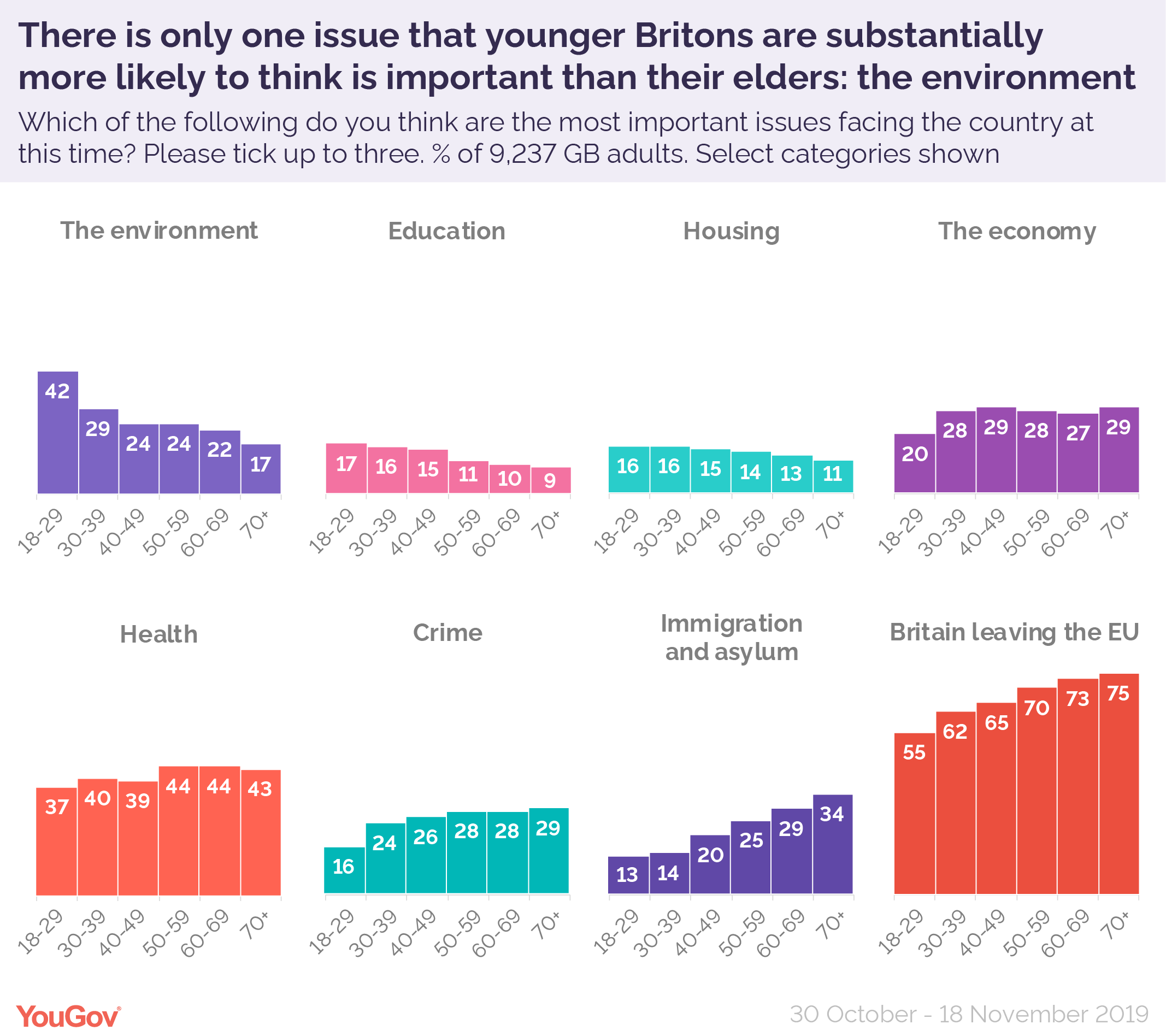Labour still dominates, but is attracting fewer young people than in 2017
Age was a stark dividing line in the 2017 general election, with younger voters overwhelmingly backing Labour (over 60% of 18-29 year olds) and older voters heavily skewing Conservative (69% of those over 70).
YouGov data from the end of last month showed a more mixed picture than in 2017, but a large second poll of over 10,000 people shows how age continues to divide the electorate as the two main parties increase their share of the vote. Movement in the youth vote could be pivotal in the December election.
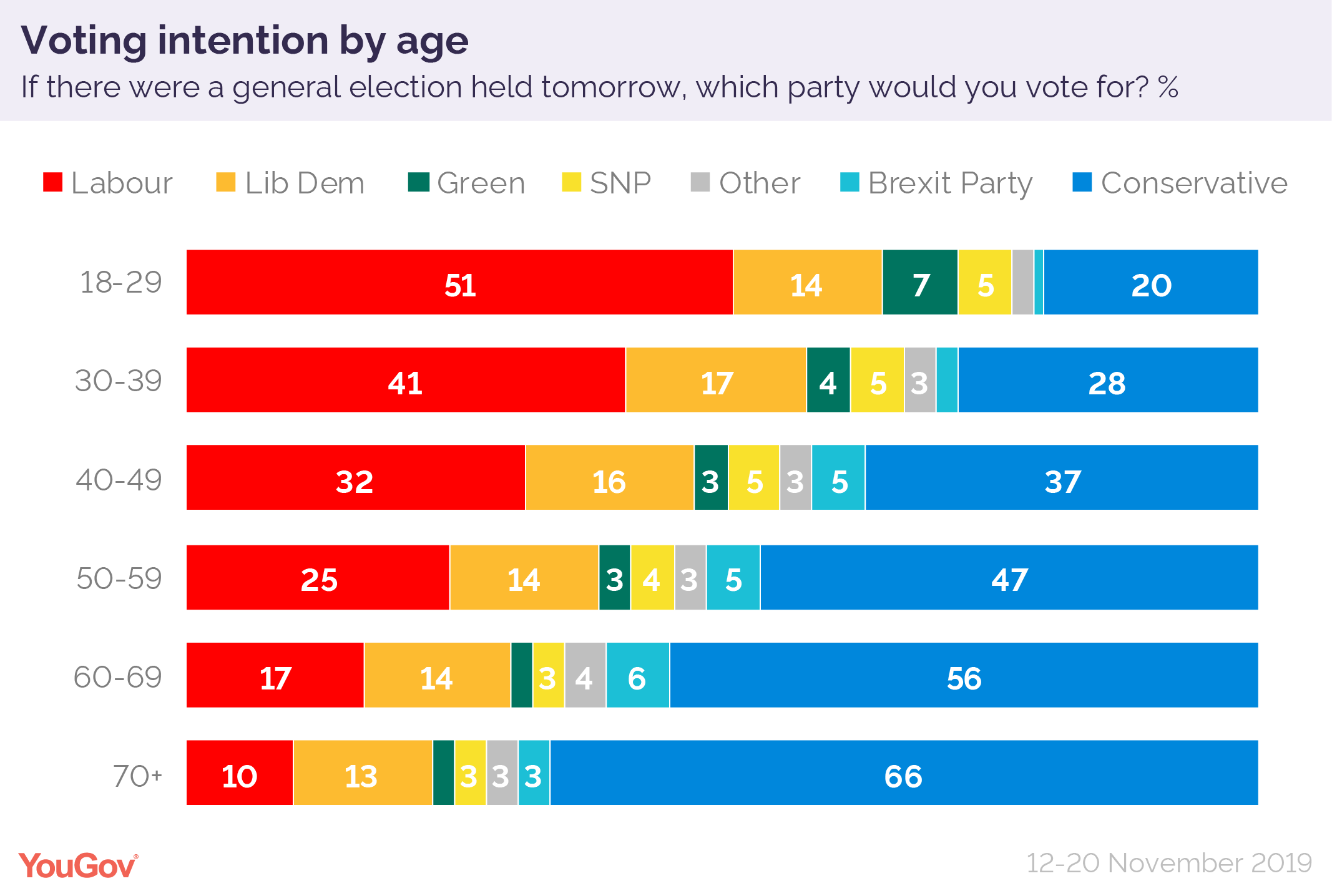
Amongst young voters, Labour clearly has the edge, increasing by 13 percentage points amongst 18 to 29 year olds since the start of October from 38% to 51%. But this still falls short of the 60% share it enjoyed in 2017.
This shortfall is due in part to the strong showing by both the Liberal Democrats and the Green Party. The Lib Dems have increased their share of under 10% the youth vote in 2017 to 14% now, while the Greens have moved from 2% to 7%.
Elsewhere, the Brexit Party has struggled to gain traction amongst those under 30, currently sitting at just 1%. And the Conservatives, on 20%, are largely static compared to 2017.
Although the strength of the Lib Dems and Greens is preventing a Labour lead on the same scale as 2017, it’s important to note that they still hold a 31 percentage point lead over their nearest rival – an amount that has more than doubled since October.
Demographics
A more detailed picture of how young people will vote can be seen by examining other demographic splits. Our data shows clear patterns within gender, socio-economic grade and educational achievement groups.
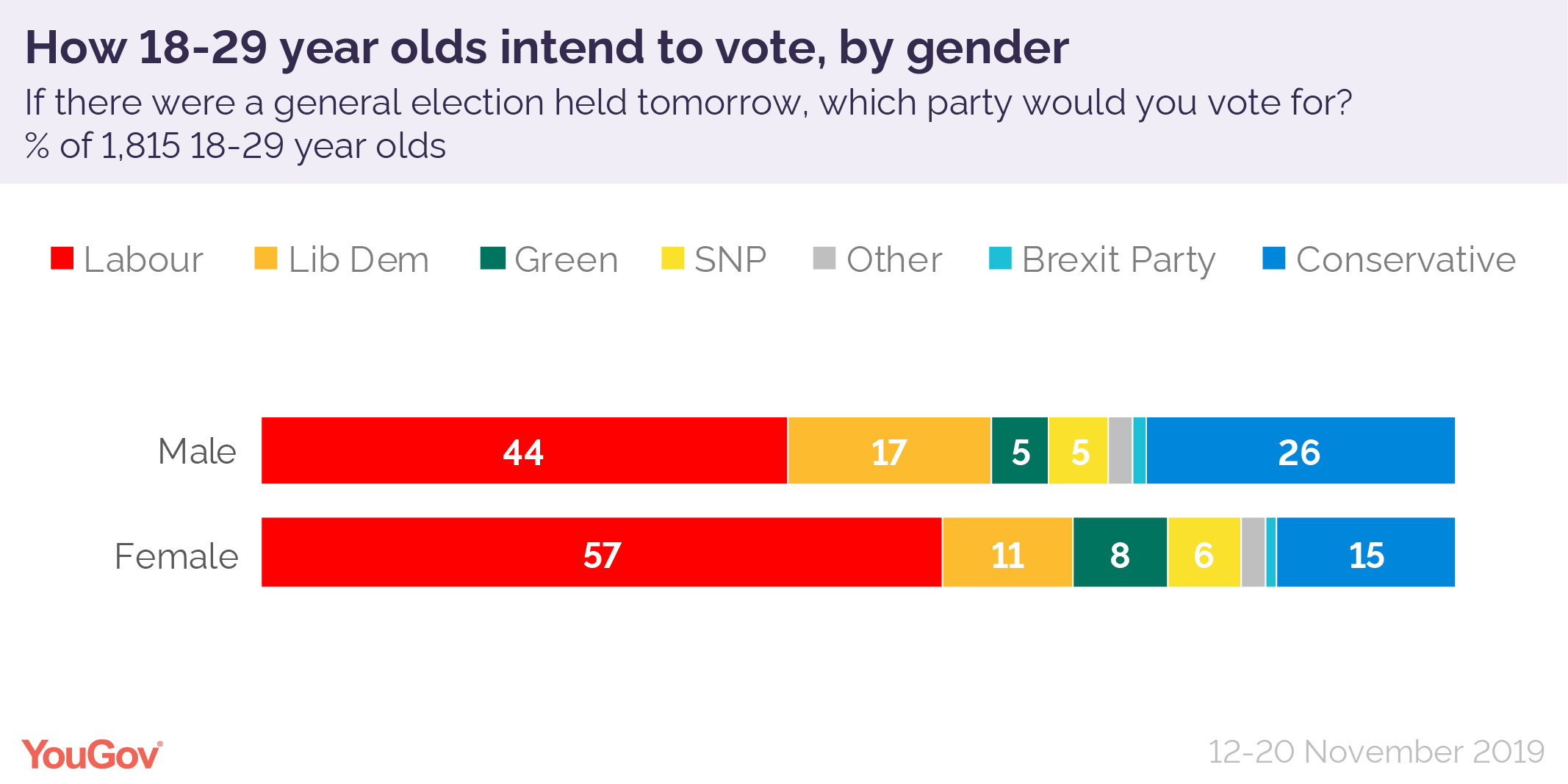
For both men and women under 30, Labour has a clear lead. But young women are much more likely to vote for Labour (60%) than young men (44%).
The Conservatives are in the opposite situation, with the backing of 26% of young men and only 15% of young women – a figure likely to alarm those within the party keen to shake-off the perception that Boris Johnson has a ‘woman problem’.
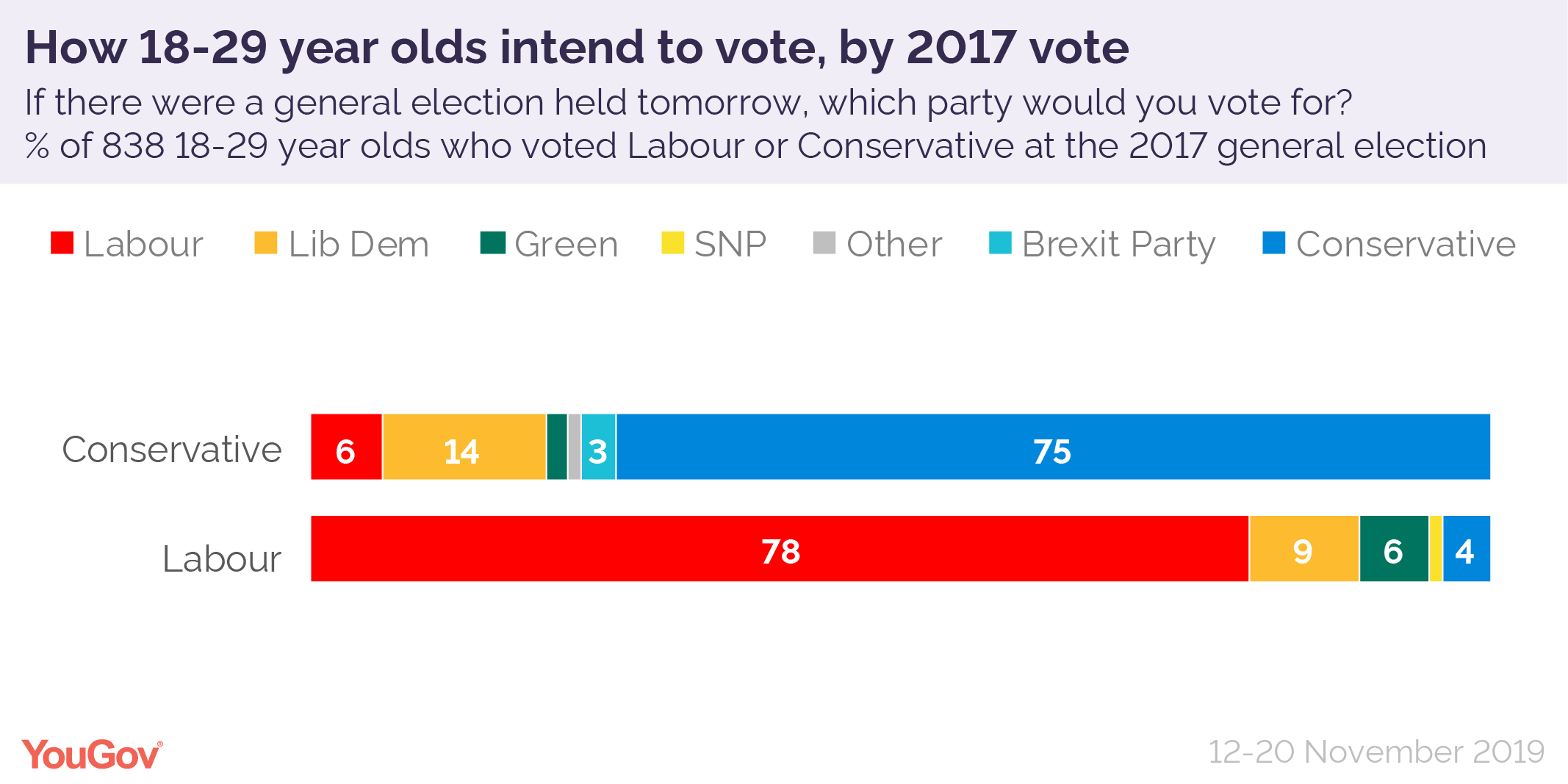
While all three of the main parties are holding on to the majority of their 2017 voters under 30, there is some movement. The Conservatives suffer the biggest drain, losing 14% of their 2017 voters between 18 and 29 to the Lib Dems and 6% to Labour.
There also exists a substantial chunk of voters under 30 that did not vote in 2017 – many of whom will be first-time voters. Of these voters, 47% say they will vote Labour, 15% Lib Dem and 22% Conservative.
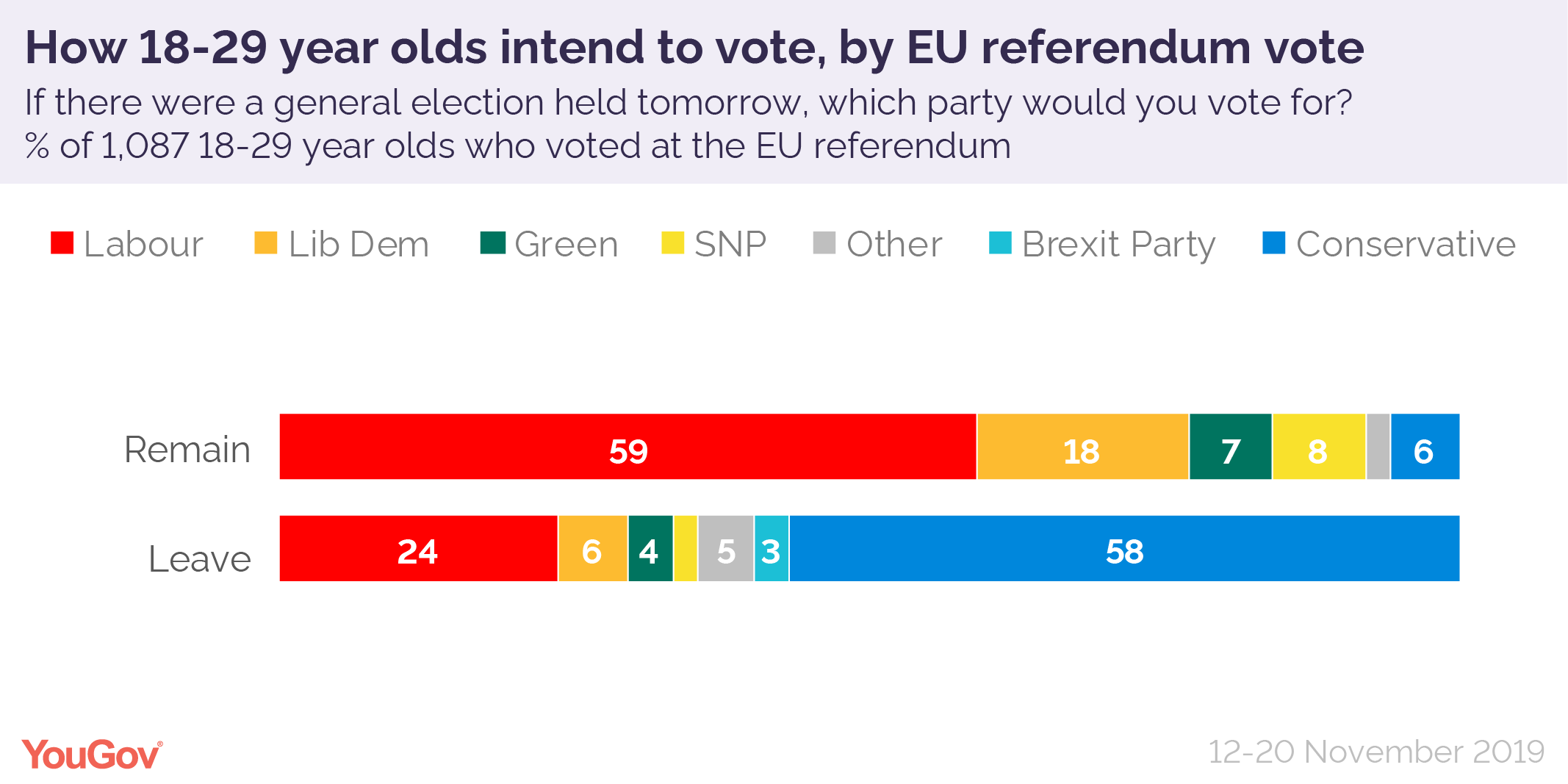
Brexit is also an effective predictor of voting behaviour among young people. A hefty 59% of those under 30 that voted Remain support Labour, but a sizeable 18% stand behind the Liberal Democrats.
As has already been shown, Labour is traditionally strong amongst young voters, and the Lib Dems' unequivocal commitment to revoking Article 50 is likely to sway a large number of previous Remain voters.
The Conservatives hold a majority of Leavers under 30 (58%) but also lose a large chunk to Labour. A quarter of Leave voters say that they will support Jeremy Corbyn’s party, compared to just 3% who say they will back Nigel Farage’s – though this is in part due to the Brexit Party standing down in Conservative seats.
Amongst those who did not vote in the 2016 referendum, Labour maintain a sizeable lead of 52%. A number of these voters will be those that could not vote in 2016, and with 13% supporting the Lib Dems and 8% supporting the Greens, 73% of these voters gravitate towards parties promising either a second referendum or revocation of Brexit.
Issues
Using a different sample of 9,237 Britons, YouGov has also examined which issues young people believe most important. The results are largely similar to the rest of the population, with some important exceptions.
Like the population as a whole, 18 to 29 year olds view Britain leaving the EU and health as two of the most important issues facing the country. However, where 66% of the country note the EU as a top issue, only 55% of those under 30 say the same - a difference of 11 percentage points.
The issue young people prioritise far more than the general population is the environment, with 42% of those under 30 listing it as one of their top issues – 15 percentage points more than the country as a whole. This puts the environment in second place amoung 18-29 year olds, whereas for all other groups the runner up slot belongs to health.
For many young voters, the upcoming election may be just as much a ‘climate election’ as it is a ‘Brexit election’.
Photo: Getty
See the voting intention results here and the issues results here

